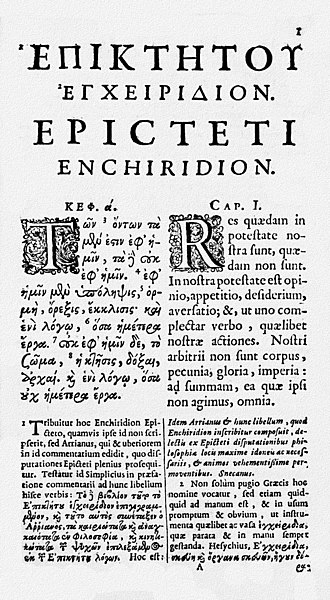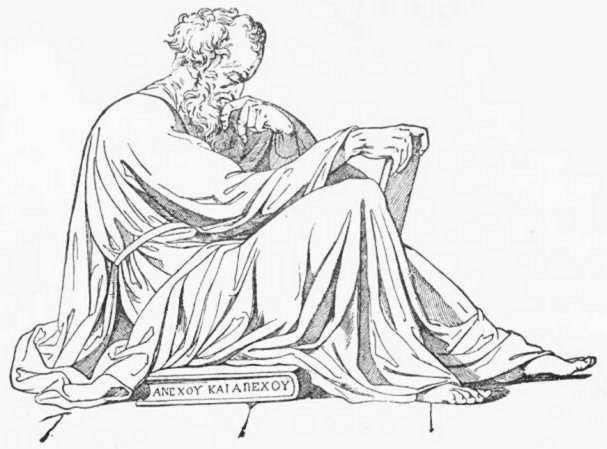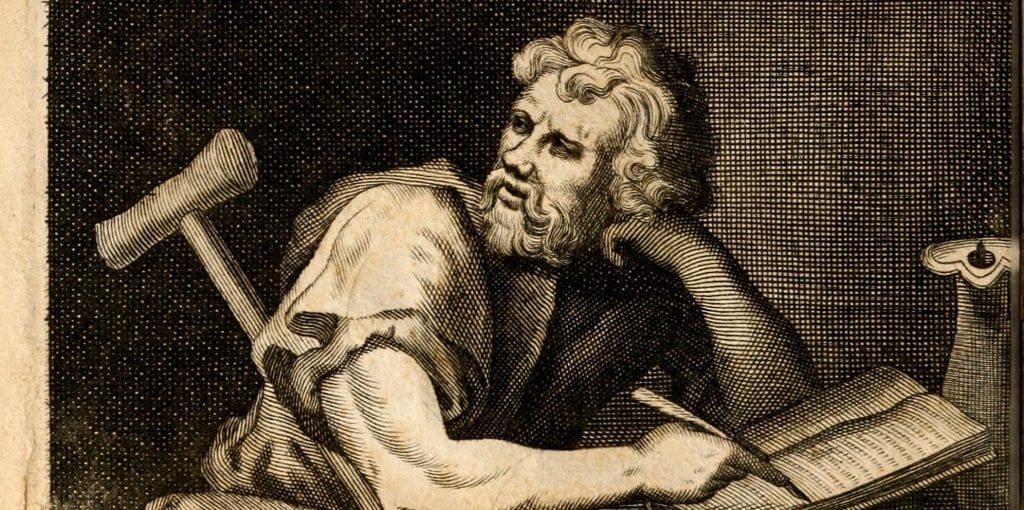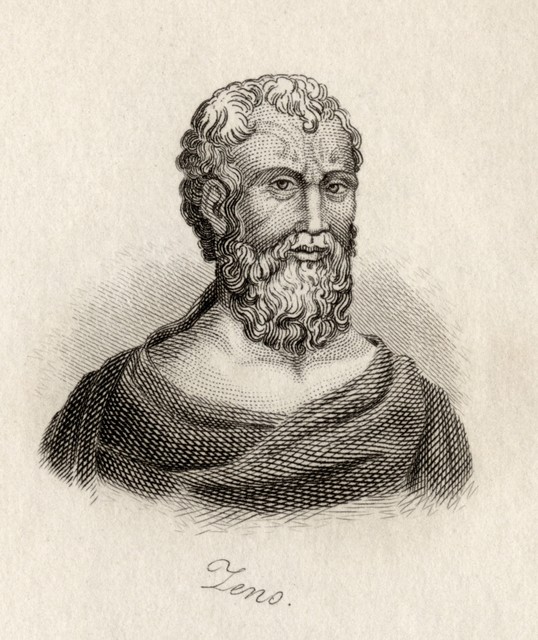Written by Edward Whelan, Contributing Writer, Classical Wisdom
Stoicism was one of the most popular and influential schools of philosophy in the Ancient World. Indeed, it is still popular to this day and is studied in Universities. One of the greatest of all Stoic philosophers was Epictetus (55-135 AD), a man who, despite being subjected to slavery, was one of the greatest and penetrating minds of his time.
His Life
Epictetus was born in c. 55 A.D. in Phrygia (what is now Southern Turkey). Epictetus was either born into slavery or was, at some point, enslaved. There are records that show that he was owned by a powerful former slave called Epaphroditos, who served in the administration of Nero, and who, despite his lowly social status, would have been a man of considerable influence and power.
According to one story, Epictetus had been crippled by a cruel master, but others claim that he had been lame since birth (this is why he is often depicted as having crutches). Epaphroditos was by all accounts a kind master and even supported Epictetus in his studies. It was not uncommon for masters to arrange that their slaves be freed after their death, and so when his master died, it appears that Epictetus finally gained his freedom.
At this point, Epictetus became a teacher of philosophy. However, in 93 AD, Domitian expelled all the philosophers from the city of Rome. Epictetus was thus forced to go into exile, and it appears that he made his way to Epirus in Greece, where he would go on to establish a school of philosophy. Soon his school became famous throughout the Roman Empire.

Artistic impression of Epictetus, including his crutch.
Epictetus was a member of the Stoic school, which had been founded
three centuries earlier by Zeno of Citium and which was very popular among members of the elite. The little we know about the life of Epictetus comes from the biography written by his pupil, the historian Arrian. It is claimed that several Emperors visited the former slave-turned-philosopher to listen to his words of wisdom. Despite being praised and admired by the elite, Epictetus himself lived a life of great simplicity and generally lived alone.
Epictetus’ Thought
Epictetus was a Stoic and he held that only through self-mastery could we live in accordance with nature. Self-mastery consists of the use of reason and living virtuously. Above all else, the philosophy of Epictetus was a practical one that sought to help people live a good and meaningful life.
Epictetus believed that philosophy depended on self-knowledge. In his works, the Discourses and the Enchiridion, he emphasized that there are things that we can control—that which is in our power— and those we cannot—that which is not in our power. Self-knowledge means learning to discern just what those things are.
“Some things are in our control and others not. Things in our control are opinion, pursuit, desire, aversion, and, in a word, whatever are our own actions. Things not in our control are body, property, reputation, command, and, in one word, whatever are not our own actions.” ~ Epictetus, Enchiridion

Zeno Of Citium 336-264. Engraved By J.W.Cook.
According to Epictetus, we should only concern ourselves with those things that are in our power, and these include our own thoughts and actions. The ultimate aim of every man and woman is to live in accordance with the ‘Universal Harmony’ of nature. Epictetus believed that we have all been allotted a role in life, and so we must play our part. We cannot control the role we’re assigned or what is thrust upon us by fate, but we can control how we choose to react.
“You may be unconquerable, if you enter into no combat in which it is not in your own control to conquer.”
He argued that we should submit to our fate and be thankful that we are alive. Being happy depends on how closely we follow the way that the gods have ordained for us. Epictetus argued that human reason is something that makes us akin to the Gods, who are rational. When humans are rational they are not only following the path ordained by the divine, but come as close as humanly possible to emulating the deities themselves.
Reason also plays another important role for Epictetus, namely in being the source of human freedom. We have the ability to make meaningful choices and we are responsible for our actions. Humans have the ability to develop the right opinions and to reject bad ones. This enables them to master their mind and emotions and live a happy and fulfilled life. Indeed, an individual is free only to the extent that they cultivated self-control and live according to reason. Only by mastering our emotions and examining our thoughts can we take control of our lives.
His Legacy
The philosophy of the former slave was enormously influential. Many believe that he formulated the most coherent and rational version of stoicism, one that offers real practical advice on the ethical life. He decisively influenced
the great Philosopher-Emperor Marcus Aurelius.

Chapter 1, page 1, of the Enchiridion of Epictetus, from the 1683 edition in Greek and Latin by Abrahamus Berkelius (Abraham van Berkel).
The Enchiridion was translated into Latin in the 15th century and became very popular. Many Christian humanists believed that the philosophy of Epictetus was compatible with the teachings of Christ, and both Pascal and Descartes were fascinated by his arguments.
A full list of his legacy could go on and on. What stands out most, I think, is the way in which a former slave, freed as he was from his physical chains, sought to teach others that true freedom ultimately belongs to the rational mind, and that to have control over oneself is to be unconquerable.
“But, for your part, don’t wish to be a general, or a senator, or a consul, but to be free; and the only way to this is a contempt of things not in our own control.”













No comments
Trackbacks
Our apologies, you must be logged in to post a comment.